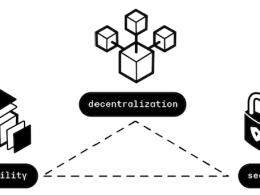TL;DR
- Decentralized networks such as public blockchains and cryptocurrencies have the potential to significantly reshape societal interactions, challenging traditional nation-state limitations.
- While facing initial resistance from certain global powers, disruptive technologies typically follow this path before being accepted and integrated into societal structures.
- Decentralized networks democratize transactions, allowing for individual empowerment and the potential for a more inclusive global financial system, transcending borders.
- The emergence of these technologies is spurring a global discourse on monetary policy, sovereignty, and institutional roles in society, potentially leading to transformative sector-wide reforms.
- Despite challenges, there is optimism regarding the transformative potential of decentralized networks. With resilience, adaptability, and continuous dialogue, we could progress beyond nation-states towards a truly global human coordination system.
Introduction
In the grand tapestry of life on Earth, humans stand apart due to their unique ability to coordinate on a massive scale. This capacity for coordination, intricate and vast, shapes our societies, facilitates our progress, and ultimately distinguishes us from other species. The journey from primitive gatherings to complex nation-states bears testament to our evolving skills in coordination and organization. Among these nation-states, the USA shines as a powerful illustration of successful large-scale coordination, having grown into an unparalleled global powerhouse.
However, the digital era presents new paradigms, disrupting traditional modes of coordination. Blockchain technology, a product of this digital revolution, is an emerging force that brings with it the promise of a new level of global human coordination. As decentralized, transparent, and secure systems, blockchains can redefine how we interact and work together on a global scale.
Yet, this innovative technology does not exist without contention. As blockchains gain momentum, they also provoke a significant conflict with the established governance models of nation-states. In many ways, the rise of blockchain technology poses a direct challenge to traditional modes of governance, leading to an inevitable resistance from nation-states. This article will explore these fascinating intersections of coordination, progress, and inevitable confrontation.
Human Coordination: The Distinguishing Factor
Humanity’s ability to coordinate on a large scale is a unique hallmark, enabling significant accomplishments like architectural marvels and complex legislation. This is evident in everyday city life, where myriad individuals move and work together seamlessly. Morning commutes and essential services like waste management and healthcare involve intricate coordination, underlining the extensive scale of human cooperation.
Our coordination abilities, when compared to those of other species, reveal a significant difference. Although animals such as ants and birds show coordination, their actions are often instinct-driven and simple. In contrast, humans can adapt and coordinate in new situations, build complex societal structures, and develop shared knowledge systems like language and laws.
Our advanced cognitive abilities, like language, abstract reasoning, and foresight, facilitate this adaptive, large-scale coordination. Language promotes cooperation, abstract reasoning helps create complex rules, and foresight allows for the planning of long-term projects.
Cultural evolution, largely absent in animals, lets us accumulate knowledge over generations, enhancing our coordination techniques. This intergenerational transmission gives us a distinct advantage, enabling continuous improvement built on prior knowledge.
Evolution of Human Coordination: From Primitive Societies to Nation-States
Human coordination has undergone a fascinating evolution, with its origins anchored in the earliest epochs of human history. In the primitive hunter-gatherer societies, human coordination was fundamentally a survival mechanism. Small nomadic groups relied on cooperation for hunting, gathering, and defense. Sharing tasks and resources were key strategies to survive and reproduce in challenging environments. These early humans had to coordinate actions within their groups, ensuring effective hunting techniques and resource distribution.
The advent of the Neolithic Revolution approximately 10,000 years ago marked a turning point in human coordination. The discovery of agriculture allowed for the creation of permanent settlements, fostering a shift from small, transient groups to larger, sedentary societies. Agriculture also enabled surplus production, which spurred population growth and social differentiation. People could specialize in various roles other than food gathering, leading to craft specialization and trade. This required an enhanced level of coordination to manage increasingly complex social and economic structures.
The formation of cities marked the next evolutionary milestone. Early cities such as Uruk in ancient Mesopotamia or Mohenjo-Daro in the Indus Valley civilization saw the development of administrative systems to manage resources, trade, and public works. This represented a new level of human coordination – the establishment of formal governance structures to orchestrate the multitude of human activities within these urban landscapes.
With time, these city-states coalesced into kingdoms and empires, encompassing even larger populations and territorial expanses. Notably, this consolidation necessitated complex administrative machinery, robust legal systems, and organized military forces. Intricate bureaucracies were created to oversee agriculture, taxation, and law enforcement, signaling an unprecedented level of human coordination.
The Peace of Westphalia in 1648, signed by almost all European powers, excluding England and Russia, signaled the official inception of the nation-state system. It ended the brutal Thirty Years’ War between Protestants and Catholics, significantly altering the territorial layout of Europe. More importantly, it laid the foundation for a new international system based on the principle of sovereignty, asserting that each political entity held undisputed power within its borders
This shift, which was conceptualized by thinkers like Bodin and Hobbs, spawned the concept of the modern state. These nation-states became the epitome of human coordination’s centuries-long evolution, symbolizing a new blueprint for political organization. They unified people under a common identity, standardized laws, and centralized authority within defined territorial boundaries. This setup necessitated extensive coordination both internally and externally. Internally, citizens, institutions, and governance structures had to synchronize their activities, while externally, the new states had to master the arts of diplomacy and international law.
In essence, these nation-states held the monopoly of legitimate violence over their territory and maintained a national army for enforcement. The Peace of Westphalia not only reshaped the political landscape of Europe but also heralded a new era in human coordination on a grand scale, setting the stage for the nation-state model that continues to shape our world today.
From Thirteen Colonies to Global Dominance: The Rise of USA as the Most Powerful Nation-State
The rise of the United States of America (USA) as the world’s most powerful nation-state is a classic example of effective human coordination. The journey of the USA, from thirteen British colonies to a global superpower, is an enlightening testament to how successful coordination can drive societal progress and national power.
The foundation of the USA’s success was laid by the Founding Fathers, who architected a unique system of governance. They drafted the U.S. Constitution to create a balanced federal structure of governance, meticulously dividing powers among the legislative, executive, and judicial branches. This system, a remarkable demonstration of coordination, has provided the nation with political stability, facilitating its growth and development.
The industrial revolution in the late 19th century catalyzed the USA’s ascent to economic supremacy. The country managed to coordinate resources, labor, and capital to build sprawling industries and expansive railway networks. Such large-scale coordination boosted domestic trade and powered the nation’s economy.
Moreover, the USA’s role during and after World War II significantly amplified its global standing. The nation efficiently coordinated its industrial might to support the Allied forces, transforming itself into the ‘Arsenal of Democracy’. Post-war, the USA played a pivotal role in establishing international institutions like the United Nations and the World Bank, displaying exemplary diplomatic and organizational coordination.
In the sphere of science and technology, the USA’s ability to coordinate efforts has resulted in revolutionary breakthroughs. The Apollo program, which put a man on the moon, remains an iconic achievement of human coordination. More recently, the digital revolution, sparked by Silicon Valley’s innovation ecosystem, exemplifies how the USA’s coordination among government, academia, and the private sector has fueled technological advancement.
Each of these milestones on the USA’s path to becoming a global superpower demonstrates the extraordinary power of effective coordination in shaping a nation’s trajectory. These examples stand as a testament to how human coordination, at its pinnacle, can not only drive national development but also shape the global geopolitical landscape.
Blockchain Technology: Pioneering a New Epoch of Decentralized Human Coordination
Blockchain technology, an innovative platform for secure and decentralized record-keeping, can potentially dramatically elevate human coordination to a global level. Birthed alongside Bitcoin in 2008, this game-changing technology is set to transform how individuals interact and transact worldwide. Its potential extends beyond traditional borders, enabling a new global value transfer and collaboration era.
In essence, blockchain is a distributed ledger system where a continuously growing series of records or ‘blocks’ are cryptographically linked and secured. Each block contains a timestamp and a link to a previous block, creating an unalterable chain of records. This unique structure ensures that once data is recorded, it cannot be retroactively modified without changing all subsequent blocks, guaranteeing a high degree of data security.
The transformative potential of blockchain lies in its decentralized nature. Unlike traditional systems, which operate under the control of a single authority, blockchain uses a peer-to-peer network where each participant or ‘node’ maintains a copy of the entire blockchain. This design offers unprecedented transparency, as any changes to the blockchain are visible to all participants, and it democratizes power by bypassing the need for intermediaries.
Cryptocurrencies like Bitcoin, Ethereum, and Cardano are leading exemplars of blockchain’s potential for reshaping global transactions. As digital currencies, they are redefining financial systems by enabling secure, rapid, and borderless transfers of value. In contrast to traditional fiat currencies, they offer innovative monetary policies, often characterized by predictable supply models that counter the inflationary tendencies of their traditional counterparts.
Apart from financial applications, blockchain’s reach extends to a range of sectors, each promising significant transformation. For instance, ‘smart contracts’—self-executing contracts encoded with the terms of an agreement—are revolutionizing the legal field, promising to automate and streamline complex processes, thereby boosting efficiency.
Moreover, blockchain technology is set to redefine identity verification systems, offering a future that is more secure and inclusive. The potential implications of such a transformation are significant, presenting potential benefits for global migration, border control, and humanitarian efforts. Ultimately, blockchain technology offers a promising avenue for the evolution of a variety of sectors, as it continues to expand and mature.
The Threat to Traditional Governance: Why Nation-States May Resist Blockchains
As blockchain technology continues to evolve, nation-states across the world are grappling with its implications. The decentralized nature of blockchains directly challenges the central authority traditionally held by governments, leading to potential friction and even hostility.
At the heart of this tension is the question of control. Historically, governments have had sole authority over key aspects of societal functioning, such as the issuance of currency, the regulation of commerce, and the administration of justice. However, blockchain technology, with its decentralized model of operation, threatens to disrupt this norm.
Cryptocurrencies, for example, offer a stark challenge to government’s monopoly over the monetary system. Bitcoin, Ethereum, Cardano and others function independently of central banks and can be used for transactions across borders with relative ease. This could erode the power of states to control their currency and influence their economies through monetary policy.
Similarly, the concept of ‘smart contracts’—code-based agreements that self-execute when certain conditions are met—could revolutionize the legal system by eliminating the need for intermediaries, such as lawyers and judges. This has the potential to undermine the role of the judiciary and other governmental institutions.
In parallel, blockchain’s global and decentralized nature raises issues of territorial sovereignty. Cryptocurrencies, immune to national borders, can disrupt state control over domestic financial systems. This transformation poses significant regulatory challenges, as existing legal frameworks often fail to address the unique nature of public blockchains effectively.
The Tug of War: SEC and Cryptocurrencies
Given these potential threats to their authority, it’s unsurprising that many nation-states are resistant to the adoption of public blockchain technology. This resistance can take various forms, from stringent regulations and outright bans on cryptocurrencies to the establishment of state-controlled digital currencies as a countermeasure.
The recent legal actions by the U.S. Securities and Exchange Commission (SEC) against prominent cryptocurrency exchanges like Binance and Coinbase illustrate the escalating tension between regulatory bodies and the cryptocurrency industry. These legal actions not only signal the determination of the SEC to establish oversight on this novel financial sector but also underline the challenges of fitting digital assets into traditional regulatory frameworks.
This confrontational stance from the SEC aligns with the regulatory approaches of other major economies, such as China and India, which have also displayed hostility toward cryptocurrencies. These developments suggest that nation-states are growing increasingly resistant to a technology that operates beyond the reach of their sovereignty.
Conclusion
In conclusion, the advent of decentralized networks like public blockchains and cryptocurrencies signifies a paradigm shift in human coordination. These technologies, with their promise of decentralized and transparent operations, have the potential to dramatically reshape societal interactions, transcending the conventional limitations of nation-states.
Despite the current opposition from some global powers, it’s important to consider the broader picture. The initial resistance to this technological revolution, while challenging, mirrors the typical cycle of disruptive innovation. History is rife with examples of radical inventions facing initial hostility before being eventually accepted and integrated into societal fabric.
The power of decentralized networks lies in their ability to democratize transactions, offering a borderless platform for value exchange. They facilitate individual empowerment and provide opportunities for a more balanced and inclusive global financial system.
Moreover, the rise of this new technology is catalyzing a global conversation about monetary policy, sovereignty, and the role of institutions in society. This discourse could lead to much-needed reforms in many sectors, further enriching the societal impact of these technologies.
As we move forward, it’s crucial to nurture a balanced perspective, acknowledging the challenges while remaining optimistic about the revolutionary potential of decentralized networks. Their impact on human coordination could indeed be transformative, propelling us towards a more connected, transparent, and equitable global society. The journey ahead is undoubtedly complex, filled with both resistance and acceptance. But with resilience, adaptability, and continuous dialogue, we stand on the precipice of a new era, primed to go beyond nation-states, into a truly global human coordination.










